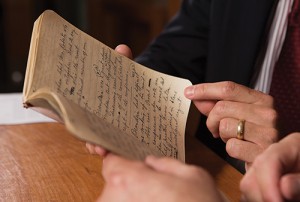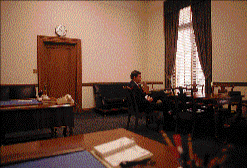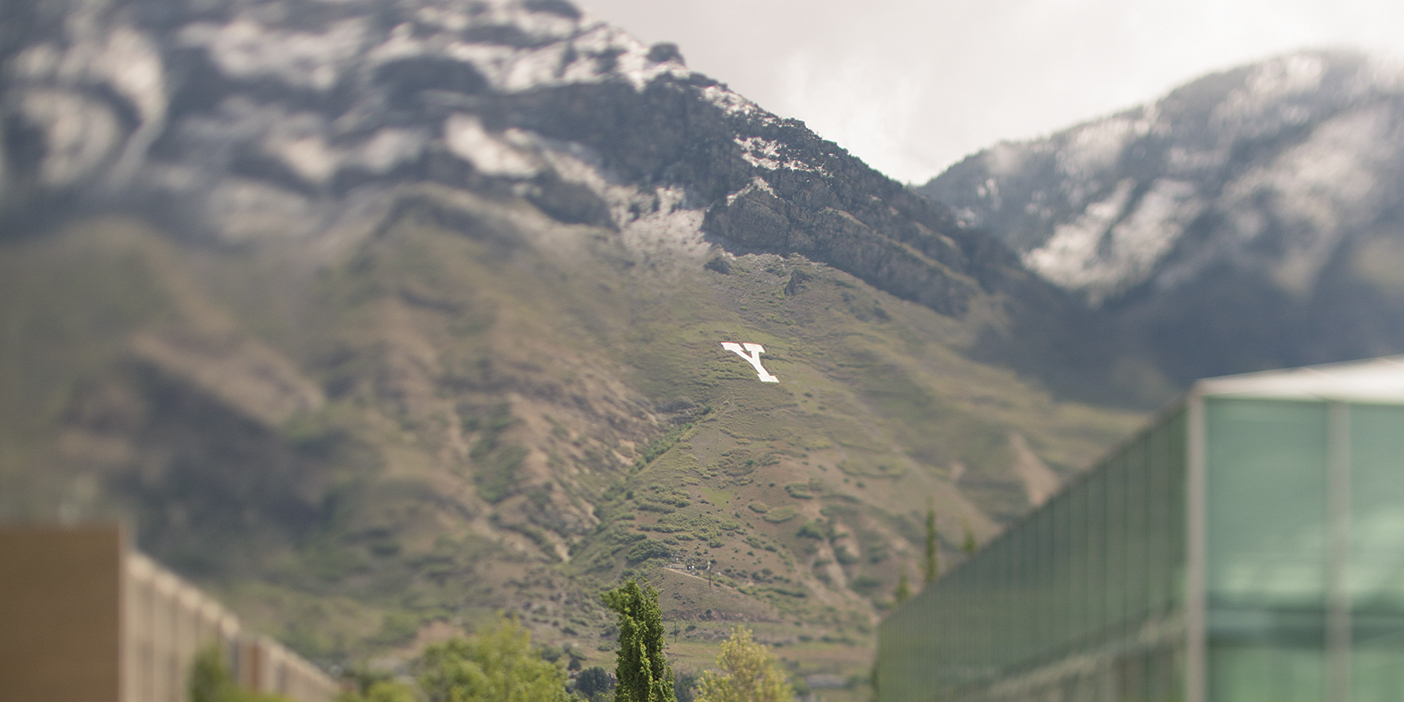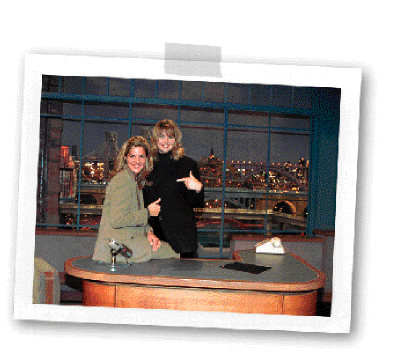Clues about a Supreme Court justice’s motivations in one of the most important decisions in U.S. history have been hiding in the vaults of BYU’s Special Collections for decades.
Comms professor Edward L. Carter (BA ’96, JD ’03) unearthed a key to the 75-year-old mystery while digging through materials donated to BYU by the late Merlo J. Pusey, a Latter-day Saint journalist who won the Pulitzer Prize.
“I came upon a notebook marked confidential, and, obviously, I got excited,” says Carter. Inside were the unpublished notes from Pusey’s interview with Justice Owen J. Roberts, famous for his shift to the left in a 1937 New Deal case regarding minimum wage. Dubbed “the switch in time that saved nine,” Roberts’ vote is credited with pacifying President Franklin Delano Roosevelt, who had threatened to pack the court with as many as 15 judges to push his popular New Deal legislation through.
Roberts’ public statements gave only legal reasons for his changed stance, but many scholars have presumed he caved in at the threat of FDR’s meddling. Pusey’s notes from the May 21, 1946, interview, however, suggest that strategic, political, and legal considerations all played roles. Take the following excerpt from Pusey’s notebook:
“It is difficult to say what makes a judge decide as he does,” Roberts says, according to Pusey. “Public outcry against an opinion is bound to have some effect on a man’s thinking when it is a question of degree—of how far can we go.”
In The Green Bag legal journal, Carter and fellow communications professor Edward E. Adams (MA ’91) detail the contents and implications of Pusey’s notes. “Roberts did not wilt under political pressure from Roosevelt,” concludes Carter, “but he also did not ignore public opinions and circumstances.”
“People will study these [notes] for some time,” says University of Michigan law professor Richard D. Friedman, a Supreme Court historian. “It really is a historian’s dream.”
—M. Todd Hollingshead (BA ’04, MA ’09)










